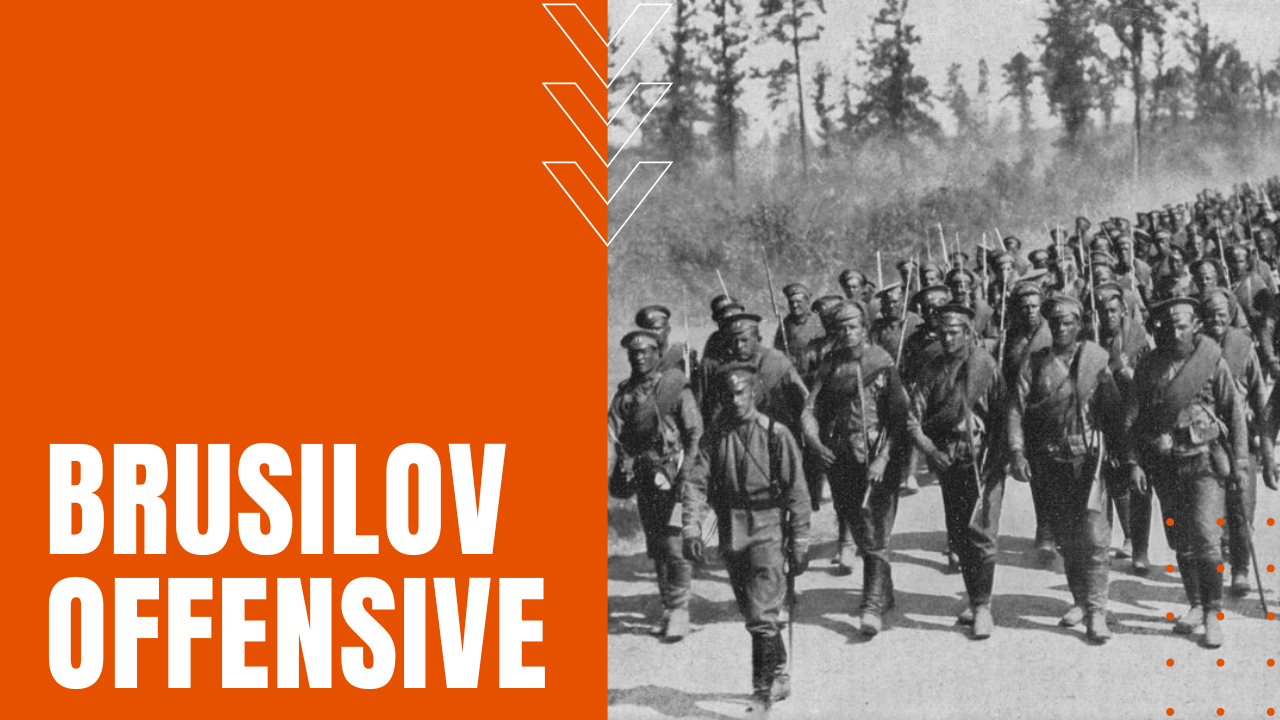Brusilov Offensive

Under threat of collapse by German forces at the Battle of Verdun—the longest single engagement of the First World War—France pleaded repeatedly with her wartime Allies to relieve German pressure on the Western Front.
The answer would come from Russian General Aleksei Brusilov, commander of the Southwestern Front, and while his plan for a summer offensive was designed to divert Germany’s troop levels at Verdun, his plan was opposed by other generals within the Central Powers’ high command.
In the end, however, Tsar Nicolas approved Brusilov’s planned offensive, setting the stage for the most lethal battle of the war.
Brusilov’s Summer Offensive
Beginning on June the 4th, 1916, Russian artillery opened fire on Austro-Hungarian forces along a 200-mile front in present-day Western Ukraine, stretching from the Pripet marshes to the Carpathian Mountains, decimating Austro-Hungarian positions while taking 26,000 prisoners the first day alone.
During the first two days of the battle, Russian troops advanced some 47 miles across the Eastern Front, inflicting 130,000 casualties while capturing over 200,000 prisoners, forcing Central Powers leadership to divert four German divisions from the West by mid-June, which led to a French counterattack at Verdun on June 23rd, just one day before the British began their preliminary artillery assault at the Somme.
How Many Died in the Brusilov Offensive?
By the battle’s end on September 20th, 1916, the Brusilov Offensive would prove to be the largest, most lethal offensive of the war, witnessing 1 million casualties for the Russians, along with near matching casualties to the Austro-Hungarian army, or about two million total dead—plus 400,000 made prisoners of war—while giving up 15,500 square miles of territory.
Staggering Russian losses during the Brusilov Offensive would further ignite the fires of revolt back home, contributing to the Bolshevik Revolution of 1917, followed by Russia’s subsequent exit from the First World War, making the Brusilov Offensive, one of the bloodiest events during a notoriously bloody war.
